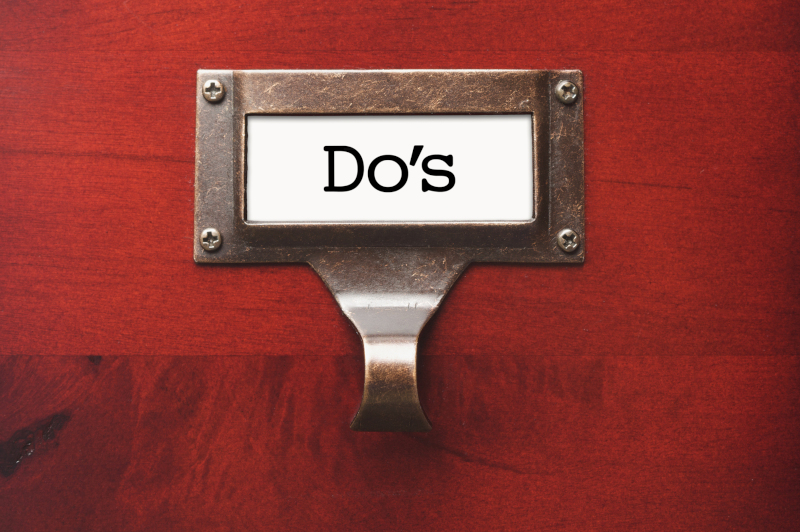How Newcomers to the Industrial Industry Might Avoid Common Pitfalls
New to the production world and don’t know where to start? Production Assistant is a great entry-level position for those who are “green” to the sector. By working in a variety of set positions, you may get a feel for the industry as a whole and figure out where your interests lie. Personal assistants are frequently required to take on multiple roles. What, then, are the qualities of an excellent personal assistant?
DO’s

It’s Important to Be Prepared
Wear tennis shoes or sneakers at all times, and be ready to run, lift, hop, skip, and jump if necessary. Keep hard copies of the schedule and call sheet on hand at all times. Prepare your time card or other payroll documentation in advance. Never leave home without a rucksack, where you can easily store spare batteries, lenses, lens cleaners, water, or whatever else your crew asks you to transport. In my early days as an administrative assistant, I earned the nickname “Mary Poppins.” I carried a first aid kit with band-aids, a charger, spare walkie-talkie batteries, and a surveillance kit in my backpack at all times. Producers would constantly remember me and praise my initiative, even though I looked like a gigantic nerd.
Preparation is Key
This is similar to the idea of “just in case.” Keep ahead of the schedule if you can. After lunch, the firm might be moving, so you should get ready. Prepare your belongings for transport immediately. Take out the trash. The craft table and water coolers need to be restocked. Get everyone a fully charged walkie-talkie and a supply of spare batteries. See if the PM needs any assistance with the call sheet for the following day. You can either confirm the order and delivery time over the phone or ask whether you need to go pick up lunch. As a director, the PAs I remember and reach out to first for future shoots are the ones who actively seek out work rather than sitting around doing nothing.
Always Be Accountable for Your Actions
Be responsible for your actions. This is something I learned from one of my first producers and has used as a foundational principle ever since. Getting a call from an assistant saying they overslept but are on their way earns a lot more respect from me than a timid text message five hours later. Time is wasted and reputations are damaged when blame is passed about. The appropriate individuals will not hold an honest mistake against you.
DON’Ts

Don’t Be a Hindrance
Stay in the moment while maintaining heightened situational awareness. The producer can recall your name (and not in a nice manner) if you are continuously in the middle of shots by texting or destroying the sound by talking. Or if you find yourself frequently stepping on audiovisual cords, MOVE.
Don’t Overstep Boundaries
On a union set, this is a major no-no. The answer is no, regardless of how many short films you made in college. Recognise your role on the team. Even if you don’t think your title is significant, don’t insult the folks who worked diligently to get it on the call sheet.
Feel Free to Ask Questions (Without Being Overbearing, Though)
When the time is right, don’t be shy about asking inquiries. Ask the AC, the production coordinator, or the producer if they know anything about this. Do not assume you know how to set up the walkie-talkies if the PM asks you to do so. If you are unsure of something, don’t be shy about asking for clarification. Your actions will determine the outcome and standard of your journey.
Do Not Approach Celebrities or Request Autographs
Do not approach the talent unless you are a talent wrangler or have been given explicit instructions to do so. No matter how much you admire him or how much you’ve read that “he’s a super cool dude so it ought to be cool,” do not attempt to work with LeBron James. It sounds quite unprofessional and does the team no favours. Even if it’s probably obvious, pretend like you’ve been in that situation before. Similarly, no behind-the-scenes tweets, snaps, or photos should be shared. This is not only inappropriate but also illegal as it violates the social media policies or non-disclosure agreements of many production businesses.
Keep a Positive Outlook
For me, this is crucial. Keep your cool and your spirits up even if everything seems to be falling apart around you and shooting has now gone into overtime for the eighth hour. PAs are the unseen heroes who keep the production running smoothly. You won’t be invited back if you’re always criticising or finding fault. Efforts of any size are appreciated. You’d make a great stand-in for any light testing, should the need arise. Smile and offer a quiet disco if requested to block off a street while the cameras are rolling. Though it may not always be appreciated, your work is crucial to the success of the production.
During my internship as a senior in college, I was given a copy of The Production Assistant’s Pocket Handbook by the executive producer. That’s just one of the many essentials I always carry with me in my trusty Mary Poppins bag. If you’re just starting production and have no idea what to expect, this is an excellent guide. I keep my copy and occasionally refer to it or give it to PA students who seek help.
Practice modesty and patience. Most persons in this field didn’t just suddenly rise to prominence. Seize every chance that comes your way, leave a lasting imprint, strive to grow as a person and an artist, and above all, enjoy what you do.
